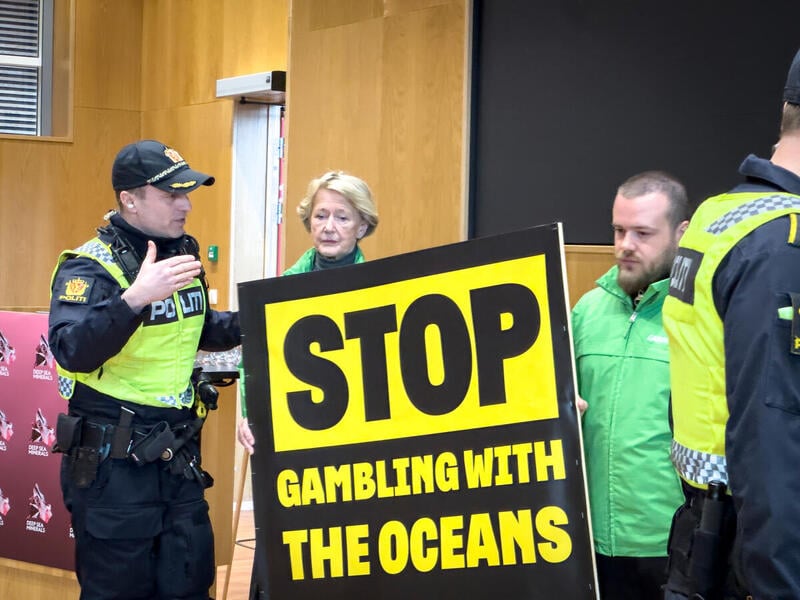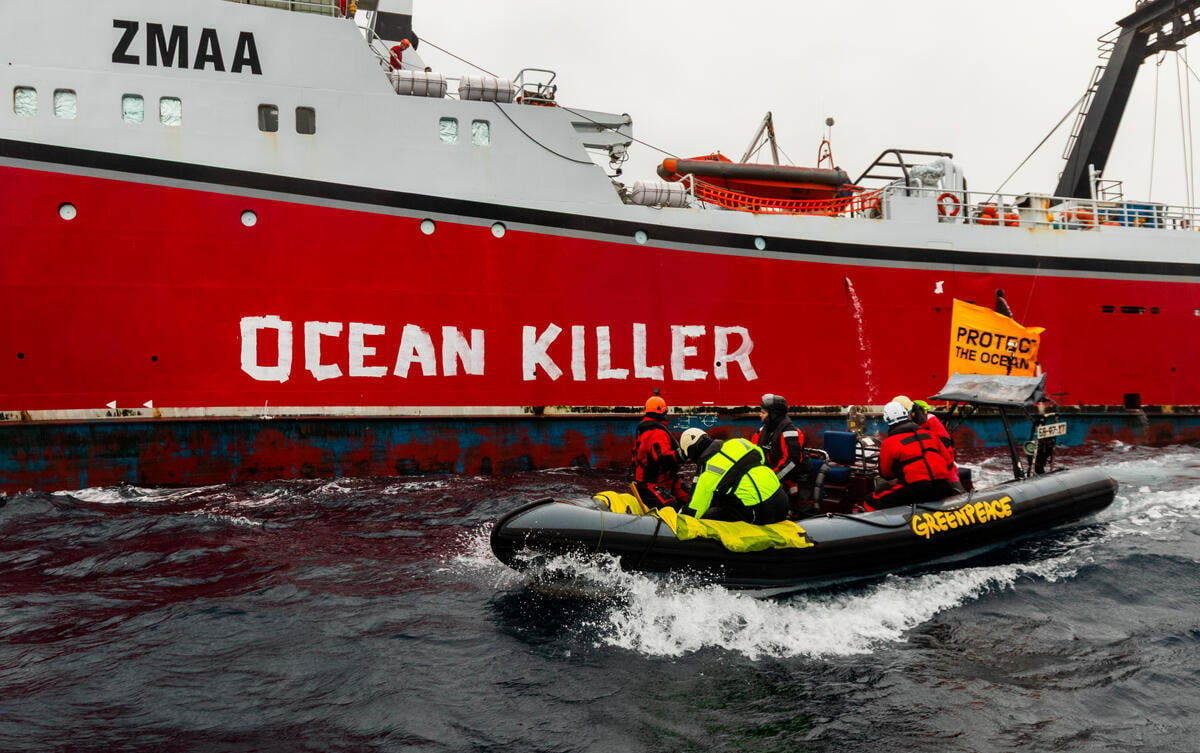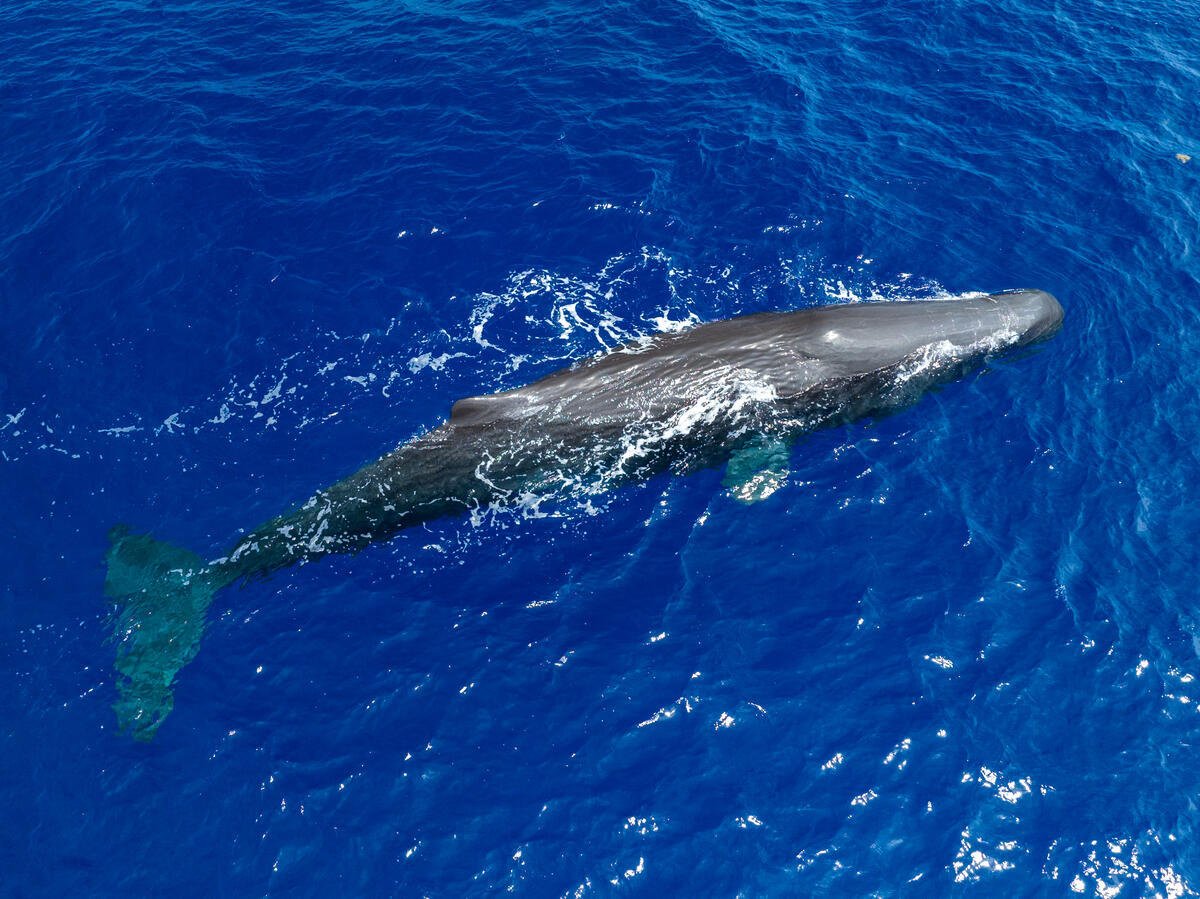Our new report, In Deep Water: The Emerging Threat Of Deep Sea Mining, takes a look at a new direction in ocean exploitation.
The oceans are facing more threats now than at any time in history. Yet a nascent industry is ramping up to exert yet more pressure on marine life: deep sea mining. A handful of governments and companies have been granted licences to explore for deep sea mining in ecologically sensitive waters, and the industry is positioning its development as inevitable, but deep sea mining isn’t happening anywhere in the global oceans – yet.
Opening up a new industrial frontier in the largest ecosystem on Earth and undermining an important carbon sink carries significant environmental risks, especially in light of the biodiversity and climate crises facing the natural world and specifically our ocean. Rather, we need a strong Global Ocean Treaty that puts conservation, and not exploitation, at the heart of how governments approach the ocean.
- Deep sea mining risks severe and potentially irreversible environmental harm, both at the mine sites and beyond. The deep ocean’s biodiversity and ecosystem functioning is barely understood and robust risk mitigation is not possible.
- Deep sea mining would undermine progress towards UN Sustainable Development Goal (SDG) 12, which aims to ensure sustainable consumption and production patterns, as well as SDG 14, which aims to conserve and sustainably use the oceans, seas and marine resources for sustainable development.
- By impacting on natural processes that store carbon, deep sea mining could even make climate change worse by releasing carbon stored in deep sea sediments or disrupting the processes which help ‘scavenge’ carbon and deliver it to those sediments. Deep sea sediments are known to be an important long-term store of ‘blue carbon’, the carbon that is naturally absorbed by marine life, a proportion of which is carried down to the sea floor as those creatures die. Voices from the fishing sector are also joining environmental groups in warning of the severe risks to fisheries, amplifying calls for a moratorium on deep sea mining.
- The deep sea mining industry has already identified that environmental concerns, especially the destruction of endemic ecosystems, are significant blocks to the development of the industry. Minutes of industry meetings released following Freedom of Information requests in the UK acknowledge that “[a]ll agreed that environmental concerns are the biggest blocker to progress.”
- The deep sea mining industry presents its development as essential for a low-carbon future, yet this claim is not substantiated by actors in the renewable energy, electric vehicle or battery sectors. Such arguments ignore calls for a move from the endless exploitation of resources to a transformational and circular economy.
- Deep sea mining is currently regulated by the International Seabed Authority (ISA), but important limits in the ISA’s mandate, as well as concerns with its environmental management in practice, underscore the problems with the current fragmented system of ocean governance. The ISA is unable to conserve deep sea environments from cumulative stresses or protect marine life in the broader ocean that could be impacted by deep sea mining. This highlights the need for governments to agree a strong Global Ocean Treaty at the UN next year, to put protection at the heart of managing international waters.
- Exploration licences for deep sea mining have already been granted before a framework of comprehensive protection and a network of sanctuaries has been put in place in international waters. The ISA has never yet turned down a licence application, even to explore places of high ecological significance like the Lost City near the Mid-Atlantic Ridge, which has been identified as an ecologically important area under the UN Convention on Biological Diversity and which meets criteria for UNESCO World Heritage status.
- The ISA has consistently sided with development of deep sea mining over marine protection, and is used by mining companies seeking to exploit the seabed as an avenue to gain diplomatic support from governments. Corporations have begun speaking on behalf of government delegations at ISA meetings, and some government applications for exploration contracts have even been prepared and funded by deep sea mining companies.
Download the full report:



